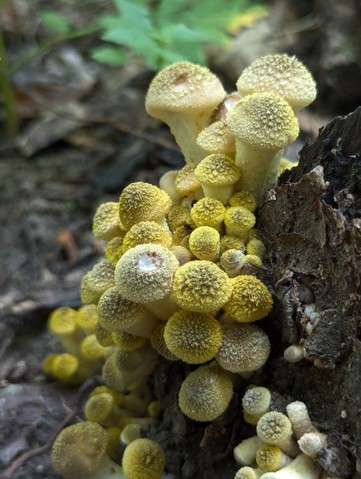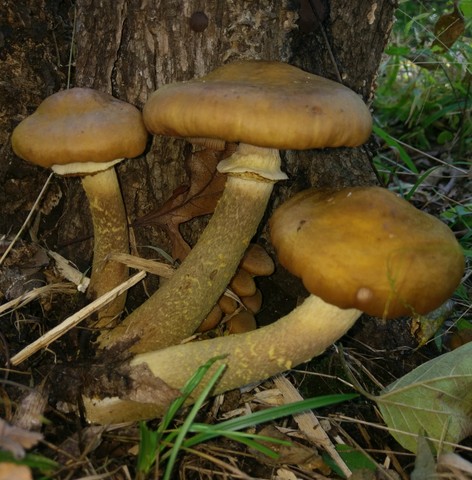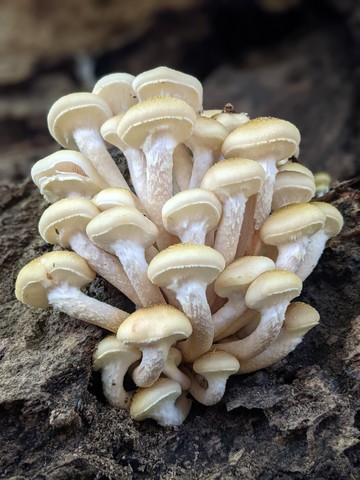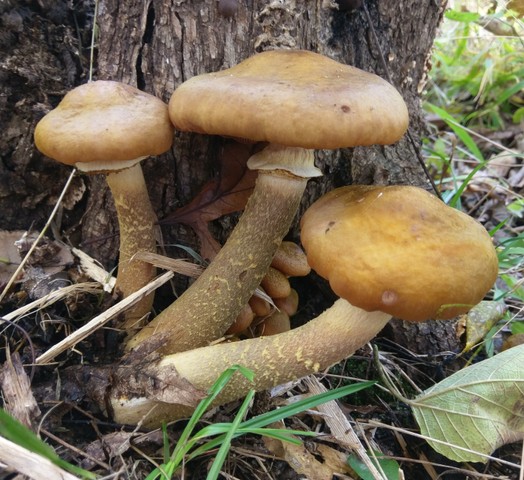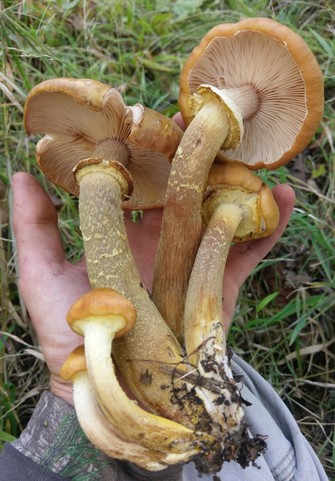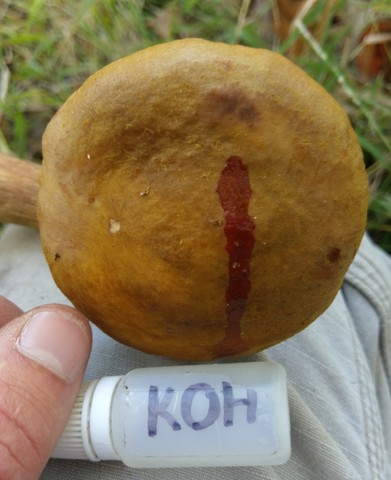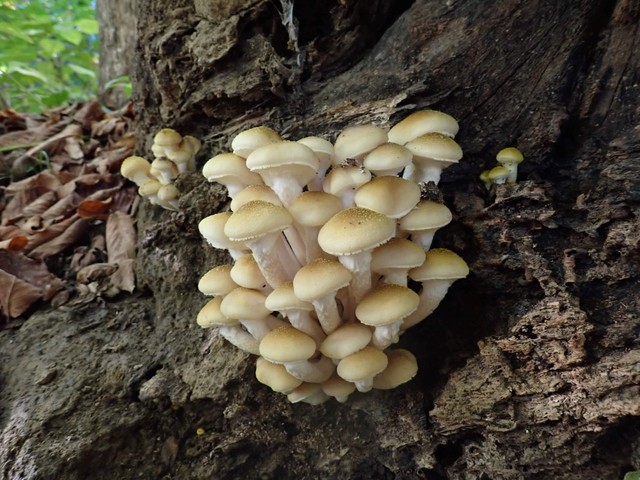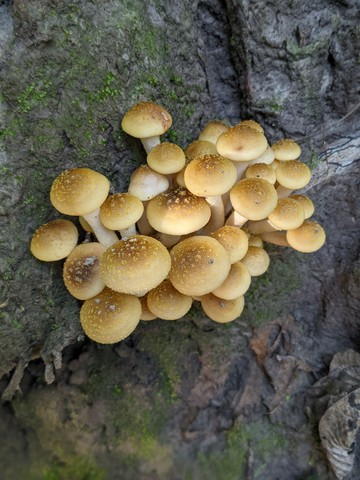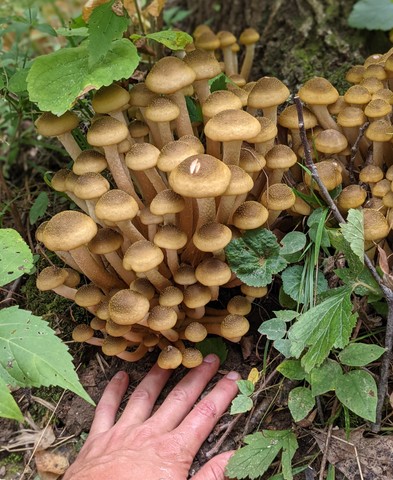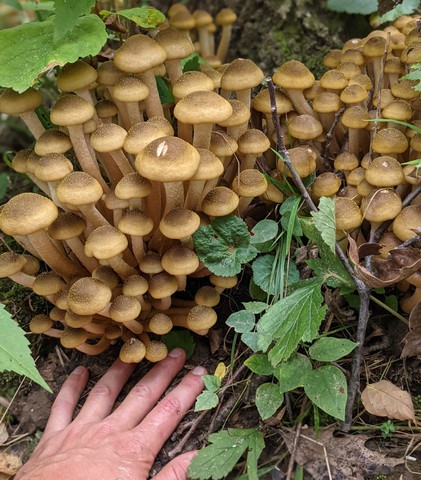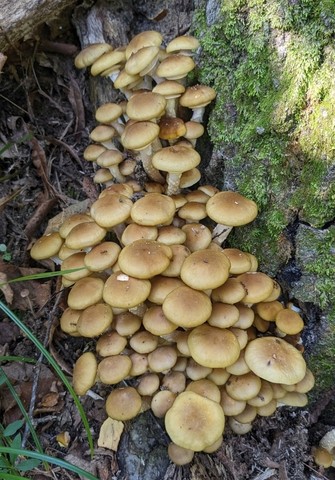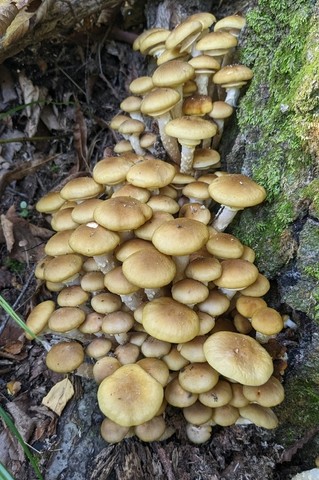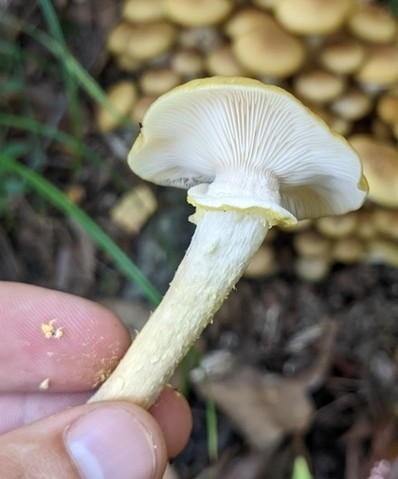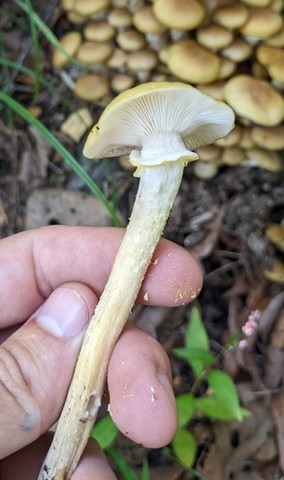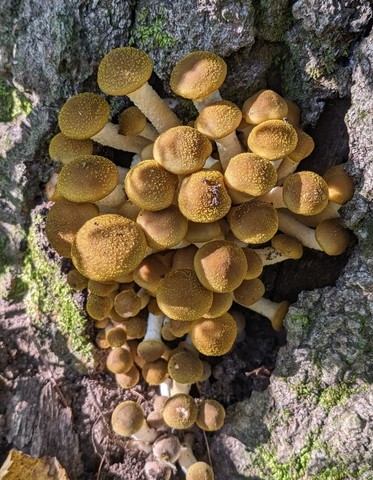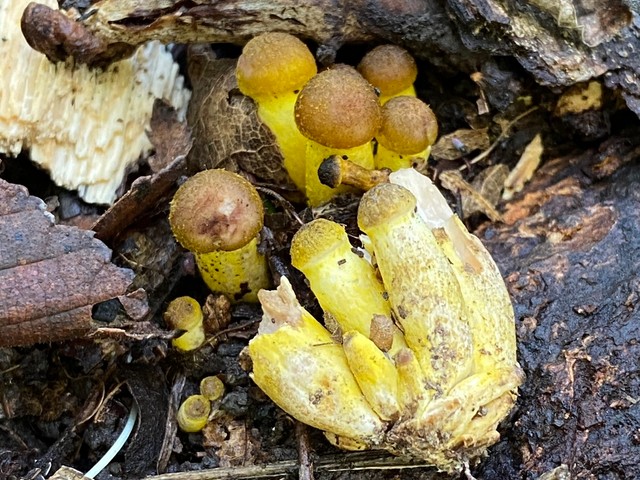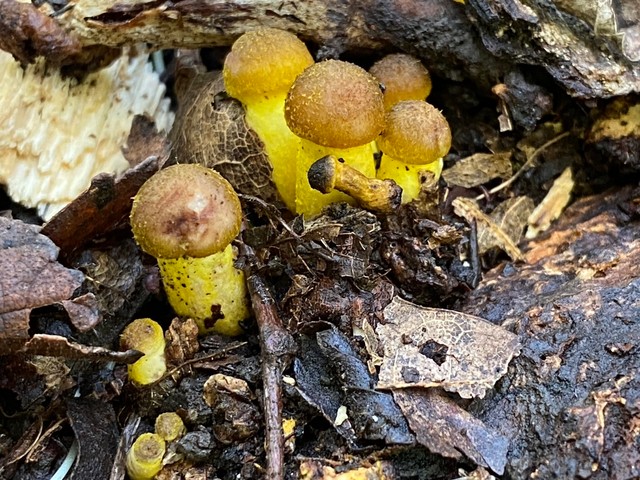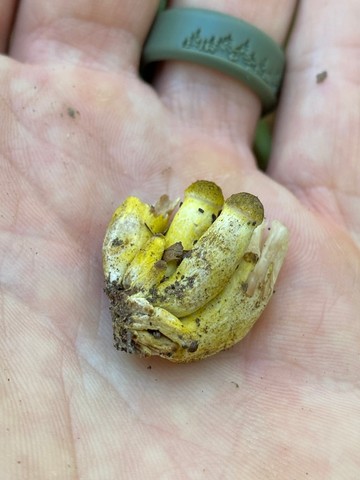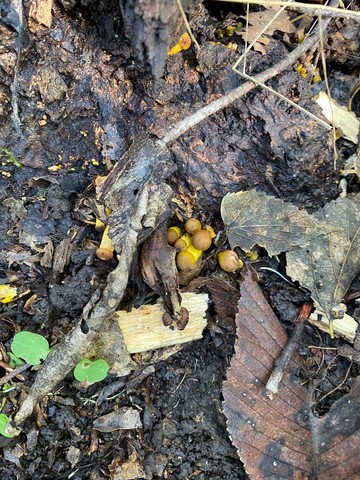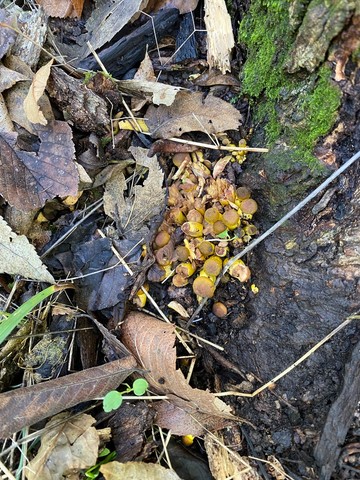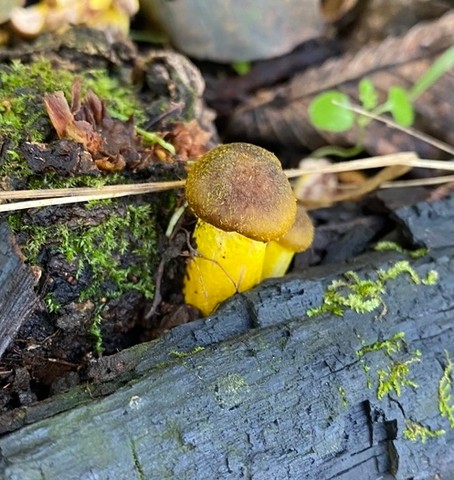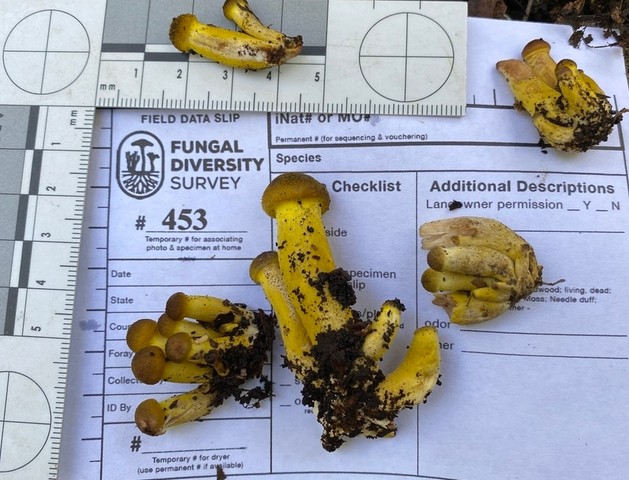Yellow Honey Mushroom
Armillaria mellea
Life > Fungi > Basidiomycota > Agaricomycotina > Agaricomycetes > Agaricomycetidae > Agaricales > Marasmiineae > Physalacriaceae > Armillaria
Description
The Yellow Honey Mushroom (Armillaria mellea) is a decomposer and tree parasite that can be found growing in large clusters in wooded areas at the base of trees and fallen logs in the fall. It is widely distributed in the Northern Hemisphere.
This mushroom grows in large clusters at the base of trees and fallen wood. The cap shape is evenly rounded becoming flat with age. The cap is ornamented with brownish scales that are especially abundant towards the center. The scales can wear off with age.
The gill color is whitish. The gills are attached to the stem usually with a small tooth running down the stem.
The stem color starts out a golden yellowish when young generally turning whitish or brownish with age. There is a membranous ring (annulus) on the stem. The shape of the base of the stem is usually pointed due to the mushrooms growing in clusters. The spore print is white.
In addition to the mushroom, Armillaria mellea grows a network black rope-like structures of mycelium (rhizomorphs) that spread through the forest and are parasitic on trees.
September 19th, 2022 Field Notes - Indian Cave State Park
Growing at the base of dead northern red oak tree on open oak woodland ridge.
October 11, 2023 Field Characteristics:
- Primordial specimens growing at the base of hardwood tree in mixed oak/hickory woodland.
- Caps round, firm with yellow scaber-like structures on pileipellis.
- Stipes yellow and firm.
References
Kuo, M. (2017, May). Armillaria mellea. Retrieved from the MushroomExpert.Com Web site: http://www.mushroomexpert.com/armillaria_mellea.html
Created December 15, 2025 at 10:41 AM
